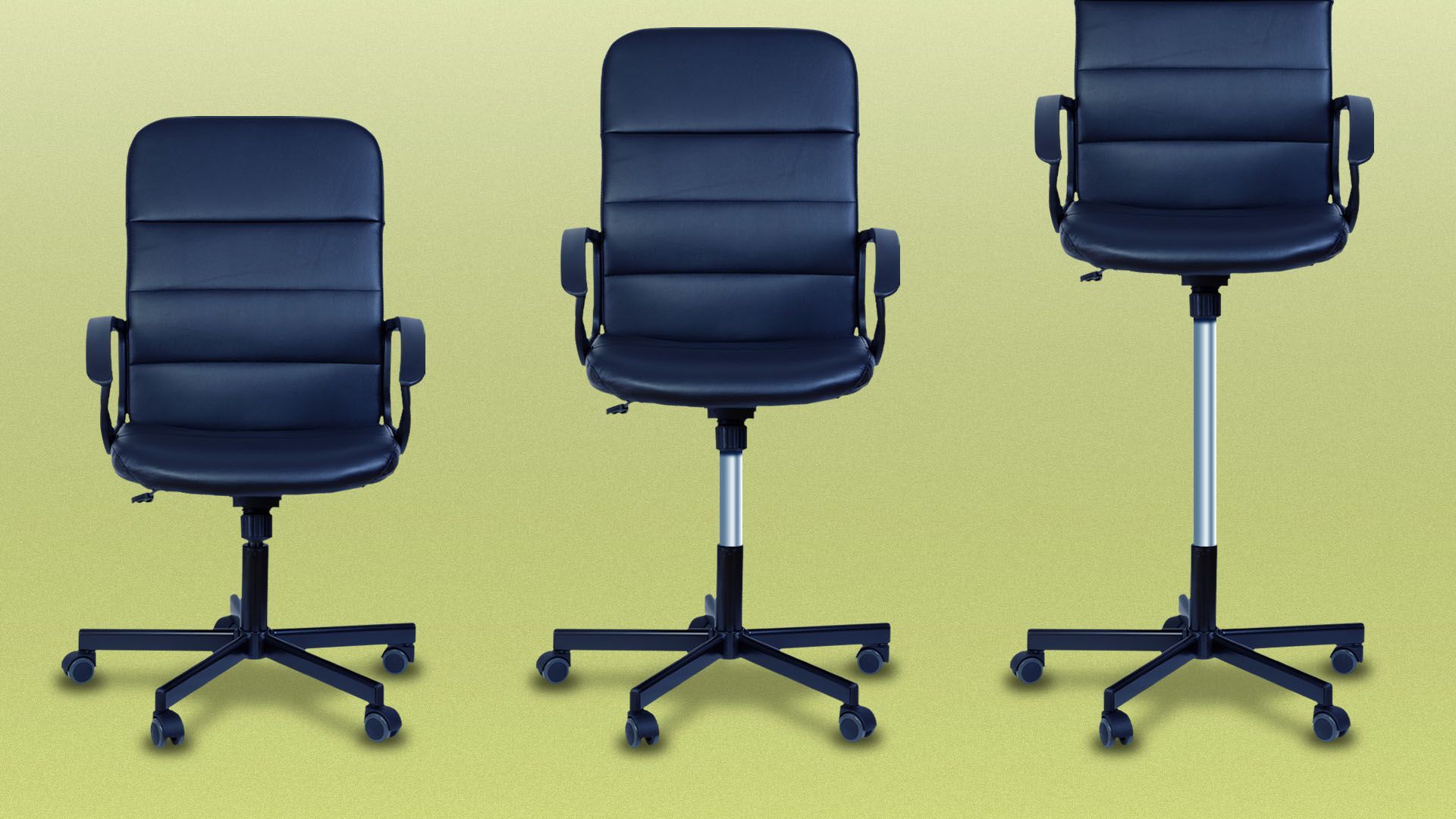| | | | | | | Presented By ADM | | | | Axios What's Next | | By Alex Fitzpatrick, Jennifer A. Kingson and Joann Muller · Sep 29, 2022 | | As Gen Zers come of age, their brand preferences are taking shape — and they absolutely love tech and snack companies, Jennifer reports today. - Axios and Noticias Telemundo invite you to join us virtually for the inaugural Axios Latino Visionarios event tonight at 6 p.m. ET. Register here to livestream sessions.
Today's newsletter is 1,082 words ... 4 minutes. | | | | | | 1 big thing: Gen Z's favorite brands |  Data: Morning Consult; Note: Gen Z adults defined as ages 18-25; MOE ±1 percentage point for all adults, ±2 for Gen Z; Chart: Madison Dong/Axios Visuals The youngest generation of adults is so crazy for tech companies that YouTube, Google, Netflix and Amazon are their four favorite corporate brands, a new Morning Consult survey finds, Jennifer A. Kingson reports. - Gen Z also loves junk food and mass retail: The other brands in their top 10 are M&Ms, Doritos, KitKat and Oreo, plus Amazon, Walmart and Target.
- Two new-ish brands they're wild about? Discord, a chat app popular with gamers, and Shein, a Chinese fast-fashion company.
Why it matters: People ages 18-25 have increasing societal clout and spending power, but their tastes don't always conform to those of their elders — particularly millennials, with whom they're often lumped in. - Compared with millennials, they're much more likely to favor Discord, TikTok, Crocs, Snapchat and Shein.
- Brands they're more keen on than the general public include Trolli (the purveyors of sour gummy worms), Twitch (the game-streaming platform) and Fenty Beauty (Rihanna's brand).
Driving the news: Morning Consult's poll — conducted May 1-Aug. 21, with about 16,000 adults weighing in on each brand — found that Gen Z's tastes tilt most heavily toward tech, social media and gaming companies, as well as food and beverage brands. - 86% of Gen Z adults have a "somewhat'" or "very" favorable opinion of YouTube, making it their most-liked brand.
- Among the brands that Gen Z likes better than the general public, six of the top 20 are gaming-related.
- Chow, chow, chow: Some of Gen Z's highest-ranked brands are Cheetos, Sprite and Skittles.
Gender breakdown: Gen Z women have a more favorable view of social media brands than Gen Z men, with 77% looking favorably on TikTok versus 58% of men. - Gen Z women also have a more favorable opinion of Pinterest (+22 percentage points), Snapchat (+11), Facebook (+8) and Instagram (+6).
- Twitter is the only major social media platform that outperforms with Gen Z men (+7).
Yes, but: Gen Zers are harder to please than millennials and older consumers, consistently giving lower marks to corporate America in general, Morning Consult found. - This dovetails with the company's finding that Gen Z takes a more negative view of capitalism, said Jordan Marlatt, a tech analyst at Morning Consult.
- "They're a very political generation," observed Marlatt, noting that Gen Z's attitudes toward climate change and political polarization are likely at play.
Between the lines: The youngest Gen Zers are still in their teens — and weren't included in this survey — and the generation's tastes are still emerging and evolving. - For example, LinkedIn is becoming more popular with Gen Z adults as they enter the workforce, Marlatt said.
What's next: Expect Gen Z's tastes to continue to mature — and to keep diverging from those of millennials and Gen Xers. Share this story. |     | | | | | | 2. "Proximity bias" is very real |  | | | Illustration: Sarah Grillo/Axios | | | | Should remote workers be worried about getting noticed? Absolutely, if a new survey on "proximity bias" from workplace platform Envoy is any indication, Alex Fitzpatrick reports. - A whopping 96% of company leaders said they're more likely to notice employees' contributions when workers come into the office, rather than work from home.
Why it matters: Getting recognized can lead to bigger and better opportunities down the road, especially for people just starting out in their careers. Yes, but: Nearly half — 42% — of employees surveyed said they don't feel like their work is noticed more often when they show up in person. The intrigue: Age is a factor here. 73% of Gen Z workers said their contributions are better noticed when they're in the office, versus 59% of millennials, 54% of Gen Xers and 45% of boomers. Alex's thought bubble: For many companies and industries, some amount of remote and hybrid work is here to stay — so it's on managers and execs to ensure people are getting the recognition they deserve regardless of where they're logging on. Methodology: Envoy and Wakefield Research surveyed 1,000 U.S. office workers and 250 executives working at the office at least once per week between Aug. 8-18, 2022. |     | | | | | | 3. Offices -> housing |  | | | Illustration: Annelise Capossela/Axios | | | | Cities and states nationwide are looking to transform vacant office buildings into housing, Axios' Kate Marino reports. Why it matters: Commercial districts with little to no residential presence emptied out during the pandemic, becoming a blight on the cityscape and a detriment to local businesses like shops and restaurants. - Live-work neighborhoods, however, fared better — and much of the U.S. still faces a persistent housing shortage.
The big picture: Offices are still only half-full in many cities, yet these types of conversions have yet to really pick up steam. They're expensive, and loads of red tape and zoning laws usually get in the way. - But a few big cities, like New York, Chicago and Los Angeles, are working on initiatives they hope will unleash a wave of housing conversions in the decade ahead.
The bottom line: Saying goodbye to concentrated office districts and 9-to-5 downtowns is probably a process that will play out for decades — part of the pandemic's lasting impact on our lifestyles and communities. Read the rest. |     | | | | | | A message from ADM | | Addressing the urgent need for sustainable packaging | | |  | | | | ADM is building on 120 years of R&D to develop innovative paper and packaging solutions that are better for the planet. The reason: Almost everything we use and consume comes in packaging, so eco-conscious materials are vital to a sustainable future. Learn about ADM's packaging solutions. | | | | | | 4. 📸 Kitty Hawk, but make it electric |  | | | Photo: Mathieu Lewis-Rolland/Getty Images | | | | "Alice," the world's first all-electric commuter plane, is seen landing Tuesday after its maiden flight in Moses Lake, Washington. - Made by Israeli electric aircraft startup Eviation, Alice is designed to have a range of about 250 nautical miles, depending on conditions, and cruise at a maximum of 260 knots true airspeed. (The Pilatus PC-12, a similarly sized gas-powered turboprop, has a max cruise speed of about 290 knots, with a range of around 1,800 nautical miles.)
- Eviation is promoting a range of configurations, from commuter options with room for nine passengers to a cargo offering with 450 cubic feet of space.
What's next: Alice still has years of flight testing ahead of it, though Massachusetts-based regional airline Cape Air has already ordered 75 planes. |     | | | | | | 5. One fun thing: The strength of weak relationships |  | | | Illustration: Sarah Grillo/Axios | | | | Our outer circle of people — friends of friends and casual acquaintances — are more important than we think, Axios' Erica Pandey writes. Why it matters: We invest the most time and effort in our nearest and dearest relationships, but the weak ties can be fruitful too. That's according to a new study published in Science in which researchers dug into troves of LinkedIn data representing connections between 20 million people over five years. - They found that people were more successful in landing new jobs and moving up in their careers through connections with weak ties rather than strong ones.
The bottom line: Never underestimate the power of sparking up a conversation with your desk-mate or accepting a random invitation to meet a new colleague. Read the rest. |     | | | | | | A message from ADM | | The future of packaging has to be sustainable | | |  | | | | Packaging is an integral part of our daily lives but the environmental impact of the things we buy is a growing problem for the health of the planet. The goal: ADM is pioneering innovative plant-based solutions to help make paper and other packaging materials more sustainable. Learn more. | | | | A hearty thanks to What's Next copy editor Amy Stern. Was this email forwarded to you? Get your daily dose of What's Next by signing up here for our free newsletter. |  | | Are you a fan of this email format? It's called Smart Brevity®. Over 300 orgs use it — in a tool called Axios HQ — to drive productivity with clearer workplace communications. | | | | | | Axios thanks our partners for supporting our newsletters. If you're interested in advertising, learn more here.
Sponsorship has no influence on editorial content. Axios, 3100 Clarendon Blvd, Arlington VA 22201 | | | You received this email because you signed up for newsletters from Axios.
Change your preferences or unsubscribe here. | | | Was this email forwarded to you?
Sign up now to get Axios in your inbox. | | | | Follow Axios on social media:    | | | | | |










No comments:
Post a Comment